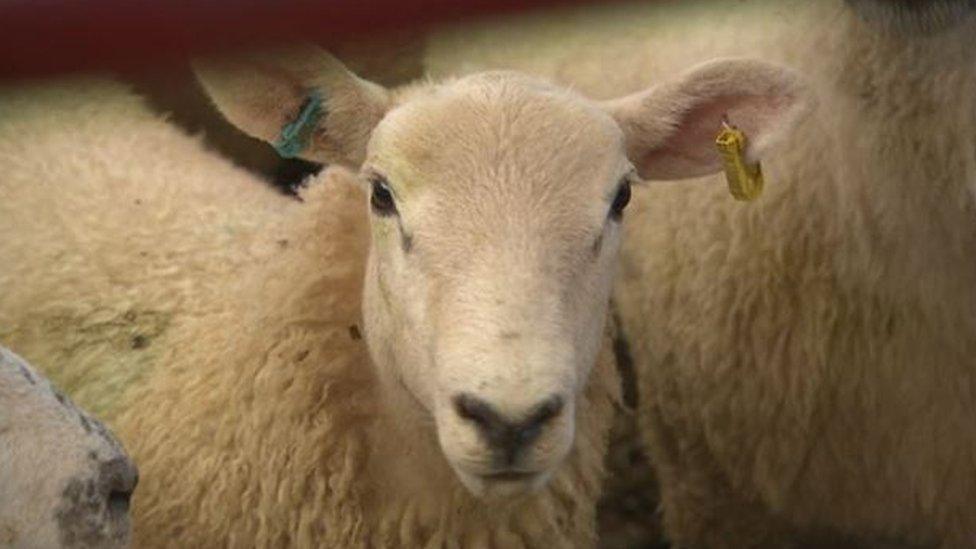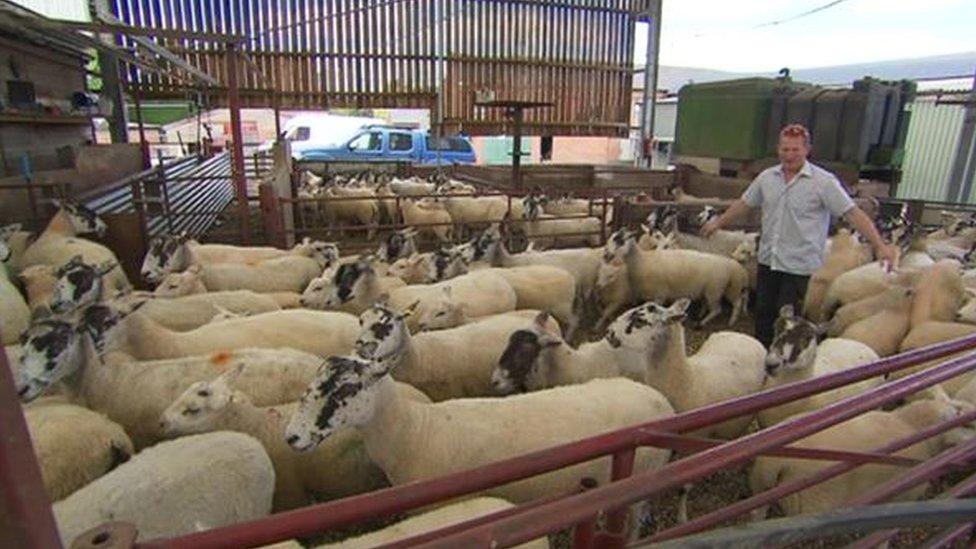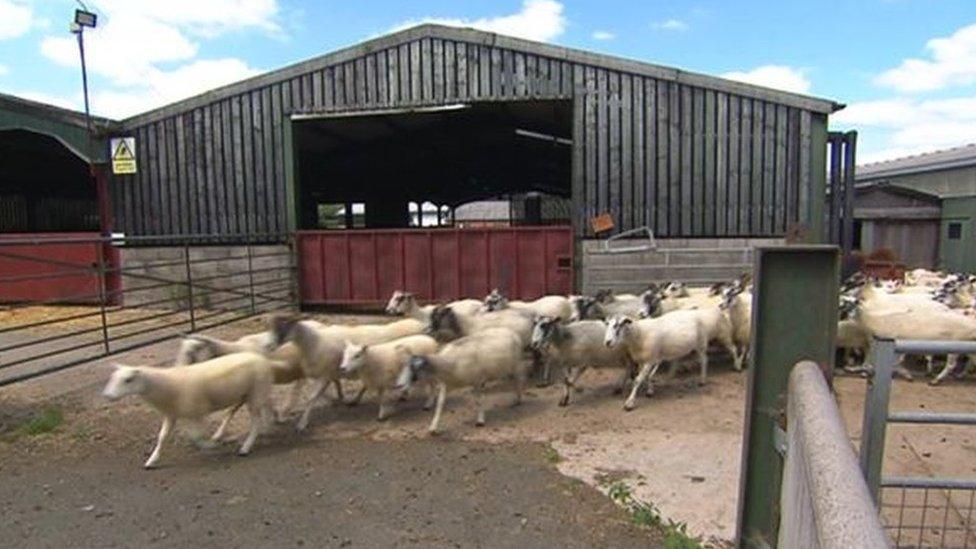The Brexit lambs posing pricing problems
- Published

Lamb attracts a tariff of about 40% under World Trade Organisation rules
I've been to see some Brexit lambs in Redditch this week. Born in March they will be ready for slaughter at the end of October, almost exactly when we are due to leave the European Union. And how we leave, with or without a deal, will have a drastic impact on the price the farmer gets for them. Or indeed if they will at all.
About a third of our lambs go for export and they usually go to European countries. But in parts of the Midlands, some farmers have flocks that are entirely for export and we also have companies like Farmers Fresh in Kenilworth that have built up a strong business by supplying meat for the export trade.
Brexit is already having a big impact on sheep farmers. Across the UK the number of breeding ewes has dropped by about 20% as farmers scale back production, unsure exactly what is going to happen at the end of October. And what really worries them is a no-deal Brexit.
Frightening
Sheep farmer Sam Jones voted leave but he told me a no-deal Brexit would be "frightening" for his business.

Sam Jones on his farm near Redditch where he looks after a flock of about 1,200 animals
If we leave without a deal then automatically all our exports are covered by World Trade Organisation rules. These introduce tariffs, or taxes, on lots of things we export. There's a lot of complex history behind the levels of the various tariffs, external and what they apply to, but farmers in particular get it in the neck.
For sheep going for export, the tariff is technically 12% of the value of the lamb plus a fixed number of Euros, but in reality it works out at about 40% of the price of the carcass. And that's why sheep farmers like Sam are so worried. If we leave with no deal then on 31 October, a French customer can buy his lamb for £100, and 24 hours later, on 1 November, it will cost them £140.
The tariff is collected by the EU and paid by the customers buying the lamb from our farmers. But an increase of £40 instantly makes our lamb uncompetitive.

These lambs will be ready for slaughter at the end of October when we are due to leave the EU
Consequences
Sam's profit margin on a lamb is just under a pound, same for Farmers Fresh, so they can't hope to swallow up the price difference. Any lambs they sell will sell at a loss so instead exporters will try to sell at home and that will lead to a glut of lamb here in the UK. That will likely mean a price crash so even farmers who only supply the UK lamb market will be affected.
Despite the drastic impact no deal would have on his business, Sam Jones says he only really became aware of the issue a few weeks ago.
It may be a political bargaining tactic but when politicians talk of "walking away without a deal", it's an idea that will have very real consequences for farmers across the Midlands.
